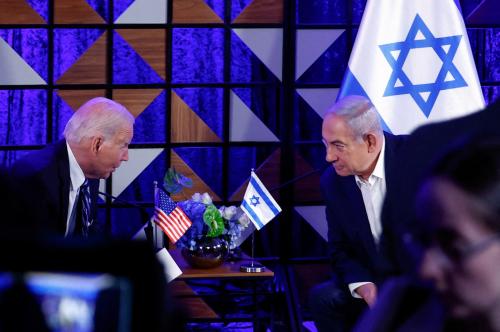As President Obama’s second term gets underway, his administration must engage with Pakistan on the issue of U.S. drone strikes. Following the appointment and confirmation of John Kerry as Secretary of State and the appointment of John Brennan as CIA director, the time is right to revisit this issue. Senator Kerry spearheaded a huge civilian aid program to Pakistan in 2009 through the “Kerry-Lugar-Berman bill”, and John Brennan has seen through more than 242 drone strikes in Pakistan since 2009 as the architect of the Obama administration’s drone program. Both men know Pakistan well, and it is now time for them to work together to make Pakistanis understand the U.S. drone program.
The debate on whether drone strikes increase anti-Americanism in Pakistan is ongoing, with the most vocal opponents of drones arguing that they increase recruitment for terror organizations. Opponents argue that this mainly happens in two ways: first, drones can give radicals ammunition for recruiting those on the margin of becoming terrorists. But such individuals are enemies of the United States in any case, and would likely remain so, whether the U.S. is actively engaged in drone strikes or not. The second argument is that drones may convert entirely non-radical individuals into joining terrorist groups since non-radical individuals could become riled up by the havoc wreaked by U.S. drone strikes. However, this is frankly hard to imagine. It is quite plausible that individuals might be radicalized if drone strikes were to harm their families, friends or communities. However, if one argues that the only effect of drone strikes is to increase radicalization, the policy prescription which emerges is either to do nothing, or to scrap the drone program. But the drone program is here to stay, so the policy so far has been to do and say nothing.
What is getting overlooked in the debate is that drone strikes are infuriating the more moderate and liberal segments of Pakistani society, those who have traditionally been more sympathetic toward the United States. Imagine a group of well-educated people, many of whom attended English-language schools, are widely exposed to American and Western media, and like and embrace many aspects of American culture. These people have probably had some sort of personal interaction with the West, through tourism, attending college abroad, or through family members or friends who live in the U.S. What bothers this group about U.S. drone strikes, more than the attack on Pakistan’s sovereignty, is the perceived American hypocrisy toward the importance of Pakistani lives and deaths. Following the horrific school shooting at Sandy Hook Elementary in December, a piece in the U.K. newspaper The Guardian titled “In the U.S., mass child killings are tragedies. In Pakistan, mere bug splats” went viral among educated Pakistanis.
In addition, coverage of a recent report on drone strikes in Pakistan by researchers at NYU and Stanford law schools, which recounts the daily terror facing those who live in areas where drones strike, gained wide circulation in Pakistan. Few cared to note that this report had been written by an advocacy group and that some of its statistics were suspect. While the New America Foundation, the Long War Journal, and the London Bureau of Investigative Journalism all compile statistics on drone strikes, the numbers differ, and it bothers this liberal, educated group of Pakistanis that the U.S. government does not release its own data on drone strikes. One of the only public acknowledgments on this issue was in a 2012 speech by John Brennan when he stated that there were barely any civilian deaths as a consequence of these strikes. This struck many as implausible, further angering Pakistanis.
Why does anger against America from this group of liberal, educated Pakistanis matter? After all, it is highly unlikely that any of these people will turn radical.
These people matter because they form the heart of an active civil society in Pakistan, which the U.S. counts on to serve as a counterweight to the radical segments of Pakistani society.
These people matter because they form the heart of an active civil society in Pakistan, which the U.S. counts on to serve as a counterweight to the radical segments of Pakistani society. They work in the Pakistani government, media and business sectors, and drone strikes are driving these people toward a constant distrust of the U.S. and hardening their attitudes against America. It undermines all the positive work the United States is doing in Pakistan, all the aid dollars it spends there, and drastically undercuts U.S. soft power in the region. If America loses these hearts and minds, it will lose the battle for Pakistan.
Where does this group of Pakistanis get its information? It buys into the only narrative out there, offered up by the outspokenly anti-American Pakistani media, which argues that drone strikes are callously undertaken without any regard for civilian casualties. This view overinflates the number of civilians killed by drone strikes, especially women and children, and underreports the number of militants killed. And without an official account of events from the U.S. government, this narrative can easily be exploited and promoted.
Let’s take a look at some empirical evidence for the above statements. According to the 2011 Pew Global Attitudes poll, a representative survey of almost 2,000 Pakistanis, 55 percent of respondents had heard (a lot or a little) about drone attacks, up from 36 percent in 2010. A simple cross-tabulation of education and knowledge of drone strikes reveals that the percentage of Pakistanis with some knowledge about drone strikes increases by education. In particular, more than 80 percent of the highly educated with graduate or post-graduate degrees say they have heard about drone strikes. Also according to the Pew 2011 poll, of those Pakistanis with some knowledge about drone strikes, 95 percent think that drones are “a bad or very bad thing”. In addition, 69 percent of these respondents disagree that drone strikes are necessary to defend Pakistan from extremist groups, and 91 percent agree with the statement that they kill too many innocent people.
These statistics show that there is room for the U.S. to explain the drone program to Pakistanis on two fronts in order to correct misconceptions resulting from its silence. First, it can counter the narrative that scores of Pakistani civilians are being killed by drone strikes by releasing numbers on civilian deaths, explaining the carefulness of its intelligence gathering before conducting each attack, and its minimal tolerance for collateral damage and civilian deaths. Second, to counter the perception that drone strikes are not necessary, the United States must engage the Pakistani public in explaining its rationale for conducting drone strikes relative to other options to eradicate militants. The U.S. should also explain the ineffectiveness of the Pakistani army against militants hiding in FATA and other areas, despite the fact that this will be a sensitive issue for the Pakistani government. The United States must, most importantly, tell Pakistanis just how effective the drone program has actually been in decimating militants in the region. To do all this, the U.S. needs to declassify the drone program now.
While such an engagement approach on the issue of drones is not going to be easy, it is worth undertaking, and it is time for the United States to take this narrative into its own hands. Liberal Pakistanis will likely still bristle about attacks on Pakistan’s sovereignty, but will appreciate America’s honesty, and the dignity an honest conversation confers on them and on the value of Pakistani lives. If the argument is that drones are the only viable option to eradicate militancy in Pakistan’s northwest, explain this to Pakistanis. Set right the confusion that many Pakistanis, even educated and liberal ones, have about who their real enemy is: the Taliban and Islamic extremism, not America. If this isn’t done now, the battle for these vital Pakistani hearts and minds might be lost forever.



Commentary
Op-edDrone Strikes and Anti-Americanism in Pakistan
February 7, 2013